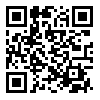Volume 37, Issue 2 (2019)
jmciri 2019, 37(2): 81-87 |
Back to browse issues page
Download citation:
BibTeX | RIS | EndNote | Medlars | ProCite | Reference Manager | RefWorks
Send citation to:



BibTeX | RIS | EndNote | Medlars | ProCite | Reference Manager | RefWorks
Send citation to:
The Effect of Eight Weeks Aerobic and Resistance Training
on AMP-Activated Protein Kinase (AMPK) Gene
Expression in Soleus Muscle and Insulin Resistance of STZ-Induced Diabetic Rat
. jmciri 2019; 37 (2) :81-87
URL: http://jmciri.ir/article-1-2905-en.html
URL: http://jmciri.ir/article-1-2905-en.html
Abstract: (4738 Views)
Background: AMPK regulation is one of biggest target in T2D and metabolic syndrome research. Therefore, the present study is aimed to investigate The effect of 8 weeks aerobic and Resistance training on AMP-activated protein kinase (AMPK) gene expression in soleus muscle and insulin resistance of STZ-induced diabetic rat.
Methods: The research method of present study was experimental. For this purpose, 21 male wistar rat with 200 to 250 g weight and 8 to 10 weeks old were selected. Then the induction of type II diabetes was performed by intraperitoneal injection of Streptozotocin. The samples were randomly allocated to diabetes control, diabetes resistance training and diabetes aerobic training groups. Resistance training was scheduled for 10 repetitions of climbing a ladder carrying a load 100% of body weight, and aerobic training protocol was running on a treadmill with 25 m/min for 40 min and both training continuing for 8 weeks long and 5 day/week. 48 hours after last training session, soleus muscle isolated and AMPK gene expression was measured. For statistical data analysis, independent t-test at P<0.05 significant level was used.
Results: Our study showed that the AMPK gene expression in soleus muscle of aerobic and resistance training group was significantly higher than control group (P value respectively 0.035 and 0.019). But there was no significant difference between levels of this factor in aerobic and Resistance training group (P=0.954). Fasting blood glucose level in aerobic and Resistance training group was significantly lower than control group (P=0.001). Also insulin and insulin resistance of aerobic and Resistance training group was significantly higher than control group (P<0.05).
Conclusion: This results show that aerobic and resistance training trough increasing gene expression of AMPK can improve blood glucose level in type 2 diabetic rat. So It can be said that aerobic and resistance training activates an noninsulin-dependent pathway and improves insulin resistance in diabetic rats.
Methods: The research method of present study was experimental. For this purpose, 21 male wistar rat with 200 to 250 g weight and 8 to 10 weeks old were selected. Then the induction of type II diabetes was performed by intraperitoneal injection of Streptozotocin. The samples were randomly allocated to diabetes control, diabetes resistance training and diabetes aerobic training groups. Resistance training was scheduled for 10 repetitions of climbing a ladder carrying a load 100% of body weight, and aerobic training protocol was running on a treadmill with 25 m/min for 40 min and both training continuing for 8 weeks long and 5 day/week. 48 hours after last training session, soleus muscle isolated and AMPK gene expression was measured. For statistical data analysis, independent t-test at P<0.05 significant level was used.
Results: Our study showed that the AMPK gene expression in soleus muscle of aerobic and resistance training group was significantly higher than control group (P value respectively 0.035 and 0.019). But there was no significant difference between levels of this factor in aerobic and Resistance training group (P=0.954). Fasting blood glucose level in aerobic and Resistance training group was significantly lower than control group (P=0.001). Also insulin and insulin resistance of aerobic and Resistance training group was significantly higher than control group (P<0.05).
Conclusion: This results show that aerobic and resistance training trough increasing gene expression of AMPK can improve blood glucose level in type 2 diabetic rat. So It can be said that aerobic and resistance training activates an noninsulin-dependent pathway and improves insulin resistance in diabetic rats.
Keywords: Type 2 diabetes, Insulin resistance, AMPK gene expression, Resistance training, Aerobic training
| Rights and permissions | |
 |
This work is licensed under a Creative Commons Attribution-NonCommercial 4.0 International License. |

